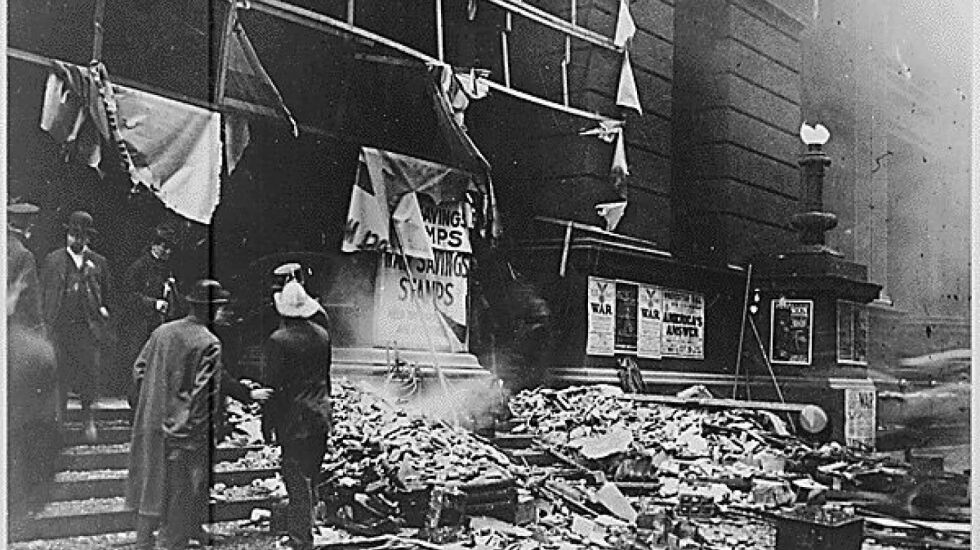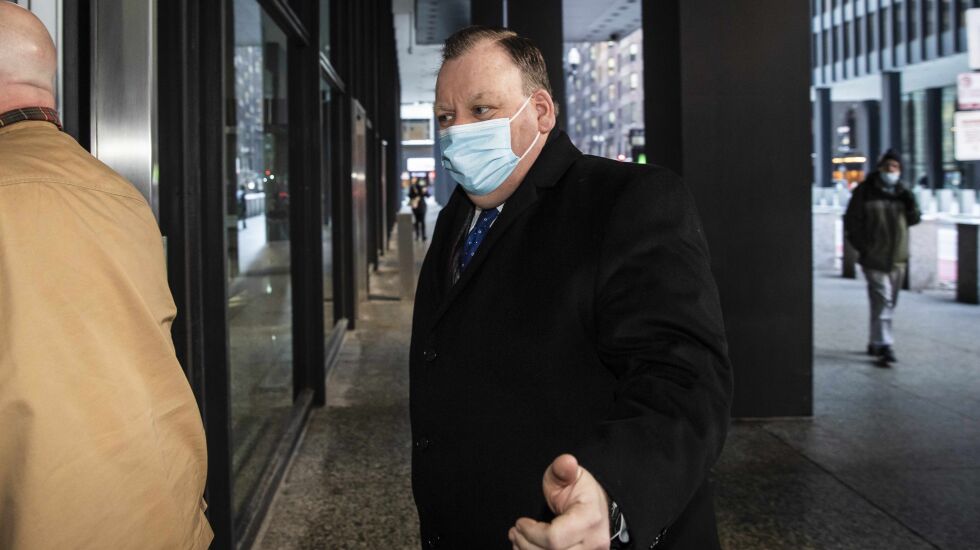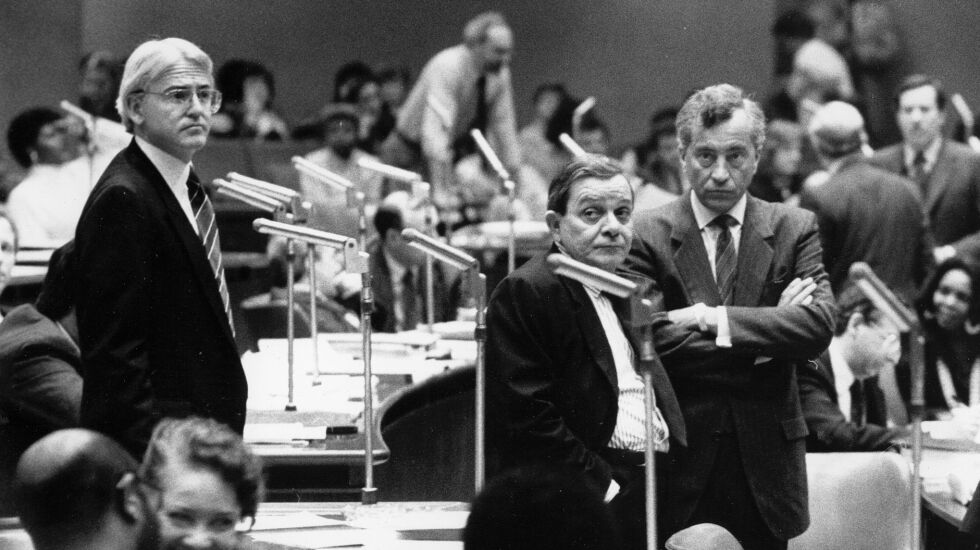
Chicago’s federal court puts its history proudly on display on the 25th floor of its downtown courthouse, sharing stories with visitors about everything from the 1918 bombing of the old courthouse to the prosecution of Al Capone.
But following a request from one of ex-Chicago Ald. Ed Burke’s lawyers, courthouse staff began temporarily covering up some of the 11 displays on the wall, including one about the history of public corruption prosecutions in Illinois.
Burke’s trial is also taking place on the 25th floor of the Dirksen Federal Courthouse.
Burke attorney Chris Gair asked U.S. District Judge Virginia Kendall on Monday to have the display either taken down or covered up. By late morning Tuesday, five of the displays had been covered by brown paper.
Kendall told lawyers Tuesday morning she expects the displays to remain covered through the end of jury selection for Burke’s trial. After that, she said jurors in the case will be using other hallways that are not accessible by the public.
It’s not clear yet when the jury selection process will end. Twenty-six potential jurors had survived questioning by the judge and the lawyers by the end of the day Tuesday. Another 21 are needed to round out the panel after prosecutors and defense attorneys exercise peremptory strikes.
That means opening statements aren’t expected to begin until Thursday, at the earliest.
For now, potential jurors in the case have been spending time in the ceremonial courtroom of the Dirksen courthouse, right across the hall from the public corruption display. Multiple potential jurors could be seen walking through the hallway Tuesday.
It’s a highly unusual move for court personnel to cover the displays. Former Ald. Patrick Daley Thompson also went on trial on the building’s 25th floor last year and was defended by Gair, but the displays weren’t covered then. The name of Thompson’s grandfather, the late Mayor Richard J. Daley, can be found on one of the displays dealing with the 1968 Democratic National Convention in Chicago and the ensuing Chicago Seven Trial.

That display also acknowledges the decision by Judge Julius Hoffman to order Bobby Seale gagged and bound to a chair during that prosecution.
Other displays mention the prosecution of former Chicago Sun-Times owner Conrad Black and the 1918 bombing of the old courthouse that was blamed on the Industrial Workers of the World, a labor group known as the Wobblies. Among the workers reportedly in the building at the time was Walt Disney, who was working as a substitute mail carrier in the post office there.
The displays dealing with Capone, Black, the 1968 convention and the courthouse bombing were also covered Tuesday.
Burke’s prosecution is one of the most significant public corruption cases to hit the Dirksen courthouse in years.
He is accused of using his seat on the City Council to steer business to his private law firm amid schemes that involved Chicago’s Old Post Office, a Burger King at 41st and Pulaski, and a Binny’s Beverage Depot on the Northwest Side. He is also accused of threatening to block an admission fee increase at the Field Museum because it didn’t respond when he recommended his goddaughter for an internship.
Also on trial with Burke are his political aide, Peter Andrews, and developer Charles Cui.
The judge and lawyers questioned 17 potential jurors Tuesday, including a man who manages software developers, a therapist, a probation officer, a forklift operator and a few nurses.
One of the nurses raised the specter of Chicago’s Council Wars from the 1980s when she disclosed that one of her neighbors is the son of former Ald. Edward Vrdolyak, and that “literally my house looks at their house.”
She later went further, telling the judge she worked at Northwestern Hospital when Mayor Harold Washington died. She said she learned the name Vrdolyak from the “commotion” that followed.
Burke and Vrdolyak, who faced two of his own federal prosecutions, famously led a group of mostly white aldermen who opposed Washington, the city’s first Black mayor during what came to be known as Council Wars.

That woman remains in the potential jury pool for now. So does a woman who works in customer service who said she would like to serve on Burke’s jury.
When asked why, she told a lawyer, “I’ve been at home for three years. Answering phone calls. Call after call after call.”
Another potential juror was asked to play a brief word association game with a lawyer.
He asked her what word came to mind when he said “Chicago politics.”
Her answer: “Messy.”







